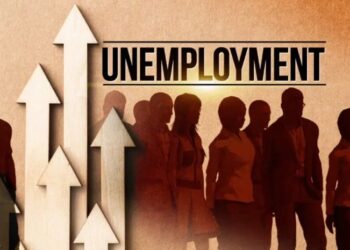Philosophers have thought much, and they are still thinking, about the function and character of labor, because there is a very tight connection between the work we do and the wellbeing we enjoy. A speciously organized work process can tremendously damage our lifestyle. Our social and political life is tightly intertwined with what we do and how we behave at our workplace, and, conversely, our performance at work highly depends on the level of social and political culture we entertain in this country. So, whether we flourish or suffer economic drawback might greatly depend on how harmoniously our personal work habits interact with the general organization of labor in the nation.
Clearly and notably, a considerable chunk of the aggregate national time in Sakartvelo seems to be relentlessly wasted on several models of public conduct: The widest possible interaction of hundreds of thousands of our citizens within the framework of various social media, including Facebook, Instagram, Twitter, WhatsApp, Messenger, TikTok, Viber, LinkedIn, Telegram, and tens of other lesser-known, yet very intensely used ones, most of which fuel futile internet discourse, often belligerent and offensive, seeing users drowning in nonsensical interlocution literally for hours on end, shattering their nervous systems and making them forget the truly useful things they wanted to do; The catastrophic amount of TV time, which all but halts our successful advance and the favorable development of our children due to the void of its general content and the stifling infatuation with political comments and discussions, while nobody is sure about their correctness and usefulness, and most of us have no idea what would be better to do in its stead; Endless street demonstrations, with a brief summer break, involving tens of thousands of our people who want to change something in the life of this Republic, having no clue that the change would come easier if all the street time was used on fruitful labor in our workplaces instead of fruitless hysterical shouts into those deafening, stupid megaphones; The needless and aimless cruising in cars around the city and beyond it, wasting time and gas and polluting the air for no reason, because purposeless cruising is one of the most beloved pastimes for our men and women of all generations and social status.
And how about the hundreds of thousands of pointless “kitchen discussions,” involving twice or thrice as many participants, with zero results at the end of the popular but unwanted get-togethers; The irrelevant amount of time spent on wakes, funerals and parties thereof, taken as indispensable in terms of keeping up our national traditions; Time used on entertainment, education and physical exercise, which are very good things to do, but which need hours and hours to enjoy; Time for habitual lengthy telephone conversations; Time for the regular daily routine needed for survival, including medical safety, nutritional needs and hygiene. This is the wrongly-organized labor and leisure process, within which our efforts and skills are misused and our valuable time is wasted.
The list of the time-and-energy spent paradigms could continue, but let’s stop here and go back to the main question: who is actually working, and when? Are we doing what we should be doing, based on our skills, qualifications, abilities and desires? The answer is probably “no” in most cases, some of us certainly being happy enough to have the jobs we have. In the best platonic tradition, the happiest among us are those who have some degree of chance to make a choice concerning work, and then go about it, in the best-case scenario each of us opting for what we are better qualified for, this being the best way to contribute to society and to take care of ourselves and our families. If our society is not organized in accordance with the model described herewith, we need to change something very seriously. Otherwise, the status quo, which we don’t often appreciate, might last forever. The chance of change and improvement probably lies in knowing the value of time and having enough knowledge of how to organize our labor process and make it compatible with our prosperity. Wouldn’t this contribute greatly to the cherished process of our Westernization? The trivial ABC of our life, isn’t it? But it is so difficult to keep it up!
Op-Ed by Nugzar B. Ruhadze














